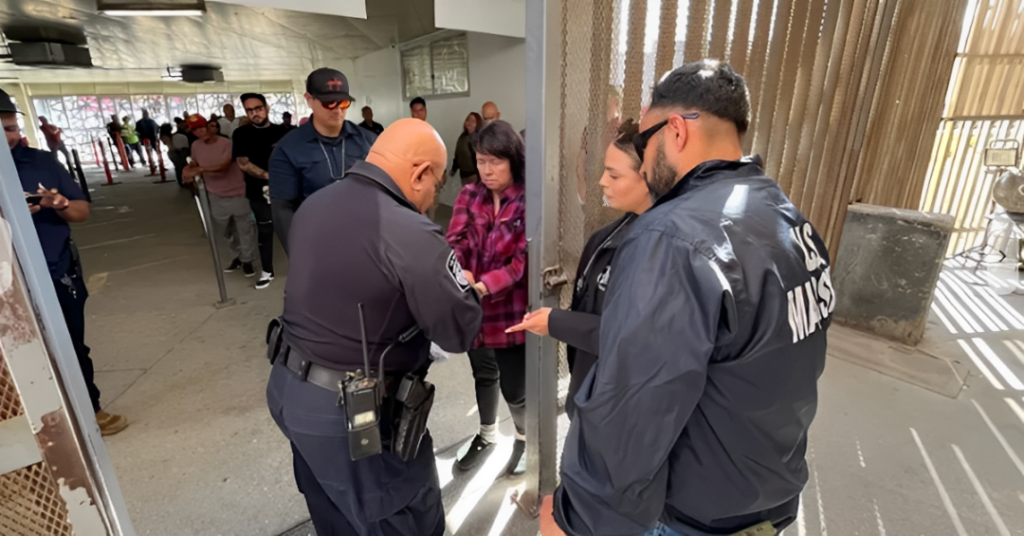Three years ago, the tragic death of Robertson County Sheriff’s Deputy Savanna Puckett left the community and state in shock. The young officer was found dead inside her burning home, a case that has since sparked a major effort to protect future victims of domestic violence. In response, Tennessee lawmakers have introduced a new law named in her honor, which seeks to track repeat domestic violence offenders.
The law, known as Savanna’s Law, was introduced by Tennessee State Representative Sabi “Doc” Kumar, a fellow member of the Robertson County community. House Bill 1200, named after Deputy Puckett, aims to strengthen the state’s response to domestic violence by establishing a registry of individuals convicted of a second or subsequent domestic violence offense.
If passed, this bill will allow the Tennessee Bureau of Investigation (TBI) to maintain a publicly accessible registry containing crucial information about offenders, such as their names, birthdates, conviction dates, counties of conviction, and current photographs.
However, sensitive information like addresses and Social Security numbers will not be included in the registry to protect offenders’ privacy. Instead, the public will have access only to the most relevant information that can help people stay informed about potential risks in their communities. Representative Kumar believes this registry is a crucial tool that will help protect future victims of domestic violence and hold repeat offenders accountable for their actions.
Savanna Puckett’s death, which ultimately led to the introduction of this bill, shocked the community. On the day she was found dead, Deputy Puckett had failed to show up for work. Concerned, another deputy went to her home to check on her and discovered that her house on the 5100 block of Highway 41 was engulfed in flames. Firefighters arrived on the scene and quickly found her body lying on the bedroom floor beneath a blanket.

A subsequent autopsy revealed that Deputy Puckett had suffered eight gunshot wounds, including fatal shots to her head, both breasts, right arm, left hand, left forearm, and multiple shots to her back. The investigation led authorities to Puckett’s ex-boyfriend, James Jackson Conn, who had been arrested in connection with her death after an hours-long standoff at his home in Smyrna.
Conn was charged with first-degree murder and aggravated arson. After pleading guilty to first-degree premeditated murder, he was sentenced to life in prison.
During the investigation, it was revealed that Conn had a history of domestic assault offenses, which only added to the severity of the case and further highlighted the need for a system to track repeat offenders. Puckett’s death, caused by a violent ex-boyfriend with a known history of domestic violence, led Representative Kumar to introduce a bill that would help communities stay better informed about individuals with a history of domestic abuse.
The goal of Savanna’s Law is clear: it’s an attempt to prevent such tragedies from happening again. By creating a domestic violence offender registry, Tennessee could offer its citizens an additional layer of protection against repeat offenders.
If the law passes, court clerks will be required to submit certified copies of any domestic violence convictions that meet the criteria for the registry to the TBI within seven days. The registry will include detailed offender information, which will help those in affected communities stay vigilant and protect themselves from repeat abusers.
While the bill is designed to track those convicted of a second or subsequent offense of domestic violence, it also lays out a financial framework to help maintain the registry.
The bill proposes a $150 registration fee for offenders. A portion of this fee will go to the court clerks for administrative purposes, and the remaining amount will be retained by the TBI to fund the ongoing maintenance of the registry. The law is designed not only to protect victims but also to create a sustainable system that can operate for years to come, allowing for continued public access to vital information.
In addition to its focus on repeat offenders, Savanna’s Law has raised important questions about how communities can protect themselves from domestic violence. It brings to light the often unseen struggles of people who are victims of abuse, whether physical, emotional, or psychological. Domestic violence continues to be an issue that affects people from all walks of life, and laws like Savanna’s Law are crucial in addressing the cycle of violence that can sometimes result in deadly consequences.

By providing a centralized and publicly accessible registry, Savanna’s Law can help individuals, families, and communities stay aware of offenders living in their area. This law could also serve as a deterrent for people who may otherwise think twice before engaging in violent behavior within relationships, knowing that they could be added to a public registry if convicted of domestic violence multiple times.
Furthermore, this law highlights the ongoing need for a larger conversation about domestic violence and how society as a whole can better support victims. It is not just about the legal system but also about providing emotional and financial resources to people experiencing domestic violence, so they can escape dangerous situations before it’s too late. Although the bill is a step forward, there is still much more to be done to address the root causes of abuse and help survivors heal.
If Savanna’s Law becomes state law, it will not only honor the life of a brave deputy who gave her life in the line of duty but will also send a clear message that Tennessee is committed to protecting its citizens from repeat domestic violence offenders. While the law is still making its way through the legislative process, it has already received significant attention for its potential to make Tennessee communities safer.
As the bill continues to move forward, it remains to be seen what impact it will have on both the fight against domestic violence and the broader conversation about how the state can do more to protect its most vulnerable citizens. Savanna Puckett’s legacy may ultimately live on through this law, which could prevent future violence and save lives for years to come.
Disclaimer: This article has been meticulously fact-checked by our team to ensure accuracy and uphold transparency. We strive to deliver trustworthy and dependable content to our readers.








